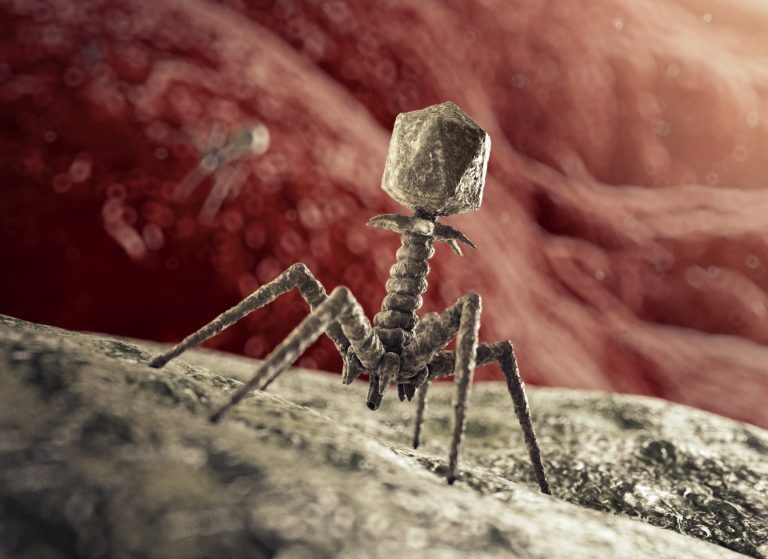
Researchers from the Université de Montpellier, France, and the University of Pittsburgh, have published a study in Disease Models & Mechanisms detailing the antibacterial effects of treating infections caused by the antibiotic-resistant bacteria M. abscessus with a bacteriophage and an antibiotic.
“Infection by multidrug-resistant Mycobacterium abscessus is increasingly prevalent in cystic fibrosis (CF) patients, leaving clinicians with few therapeutic options. A compassionate study showed the clinical improvement of a CF patient with a disseminated M. abscessus (GD01) infection, following injection of a phage cocktail, including phage Muddy. Broadening the use of phage therapy in patients as a potential antibacterial alternative necessitates the development of biological models to improve the reliability and successful prediction of phage therapy in the clinic,” write the investigators.
“Herein, we demonstrate that Muddy very efficiently lyses GD01 in vitro, an effect substantially increased with standard drugs. Remarkably, this cooperative activity was retained in an M. abscessus model of infection in CFTR-depleted zebrafish, associated with a striking increase in larval survival and reduction in pathological signs. The activity of Muddy was lost in macrophage-ablated larvae, suggesting that successful phage therapy relies on functional innate immunity.
“CFTR-depleted zebrafish represent a practical model to rapidly assess phage treatment efficacy against M. abscessus isolates, allowing the identification of drug combinations accompanying phage therapy and treatment prediction in patients.”
Previously, the Pittsburgh team had identified one bacteriophage out of 10,000, known as “Muddy,” that efficiently kills bacteria in a petri dish and could be a candidate for treating these infections in humans. However, the team wanted to find an alternative to testing their new therapy in patients.
Using zebrafish as a model organism
Knowing that human cystic fibrosis patients are particularly vulnerable to M. abscessus infections, Laurent Kremer, Ph.D., at the Université de Montpellier, and colleagues decided to test their new combination therapy on zebrafish carrying the key genetic mutation that causes cystic fibrosis in humans and mimics how our immune system responds to bacterial infections. Then the team obtained samples of an antibiotic-resistant form of M. abscessus from a cystic fibrosis patient to infect the cystic fibrosis zebrafish and test their new treatment.
First, they needed to find out how these cystic fibrosis zebrafish reacted to the M. abscessus infection. Monitoring the animals for 12 days, they found that the fish developed serious infections with abscesses and suffered a high death rate; only 20% survived.
Next the team tested how well the infected fish recovered when injected with Muddy, the antibacterial bacteriophage, over a period of 5 days. This time, the fish had much less severe infections, increased chances of survival (40%) and had fewer of the abscesses suffered by the fish during a severe infection.
Then the authors searched for an antibiotic to pair up with Muddy and found that rifabutin could treat the M. abscessus infection as effectively as the bacteriophage alone. After identifying rifabutin, Kremer and colleagues treated the infected fish for 5 days with the antibiotic and bacteriophage. With this combination treatment, the fishes’ infections were much less severe; the fishes’ survival rate reached 70% and they suffered far fewer abscesses. This is a significant improvement compared to fish treated with only the antibiotic, which had a 40% survival rate.
Having shown that it is possible to treat an antibiotic-resistant infection in vulnerable zebrafish with specially targeted bacteriophages, the authors hope this treatment can eventually be transferred to the clinic to begin saving human lives.
“We need clinical trials, but there will be many other questions to be answered on our way there […] and zebrafish provide a very helpful tool for advancing these questions.” says Graham Hatfull, PhD, from University of Pittsburgh.













